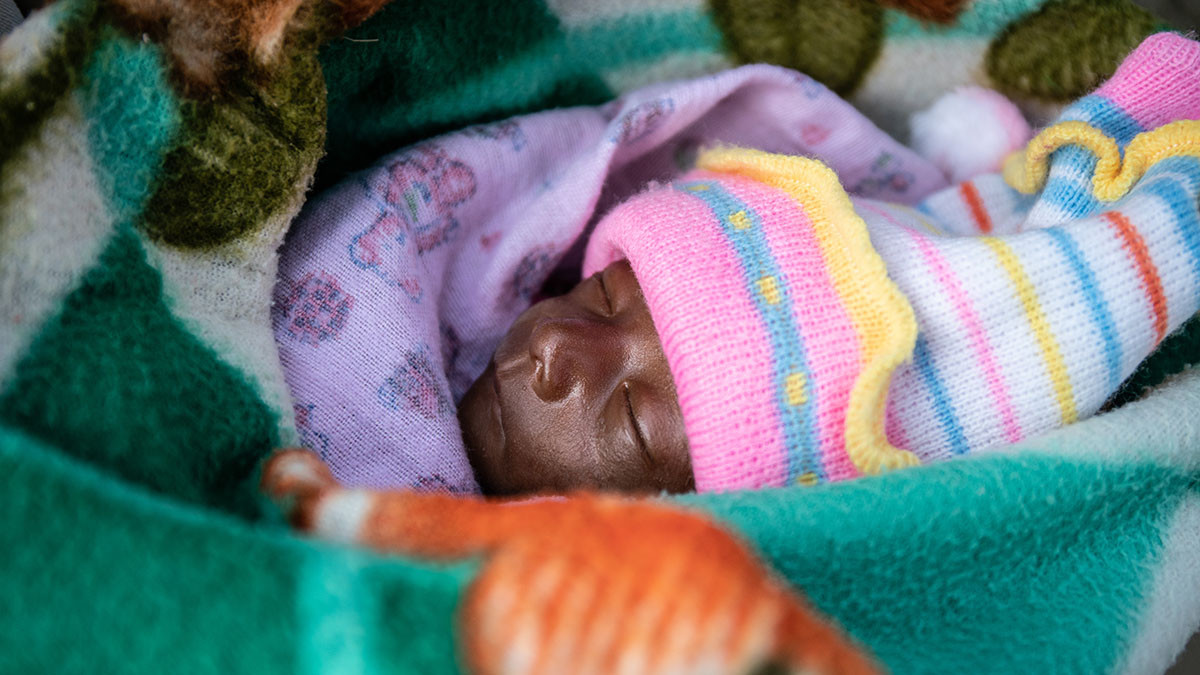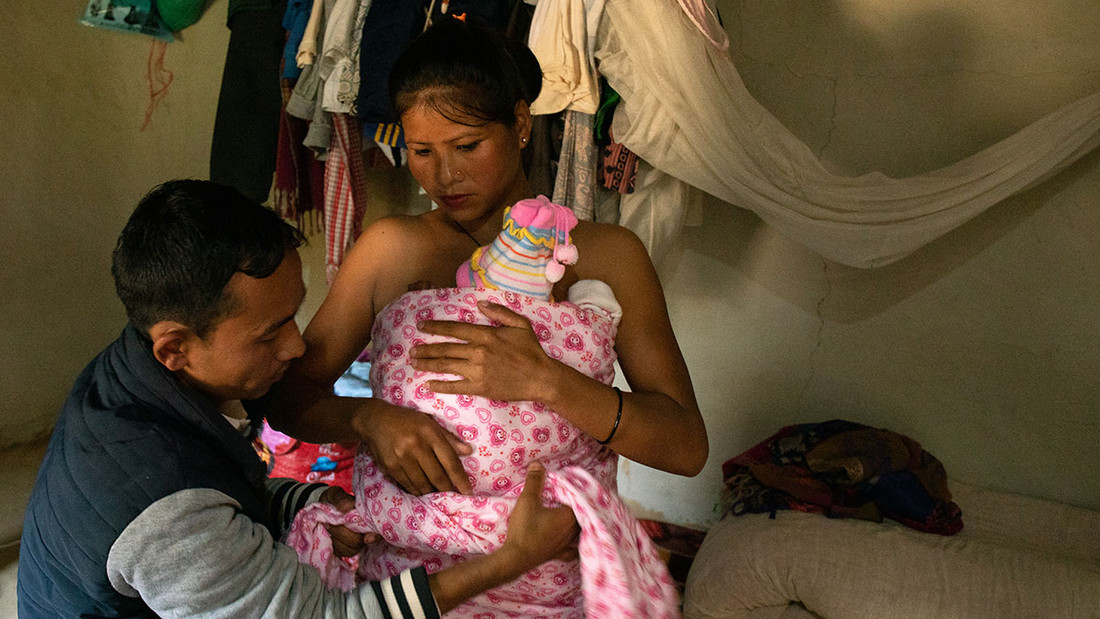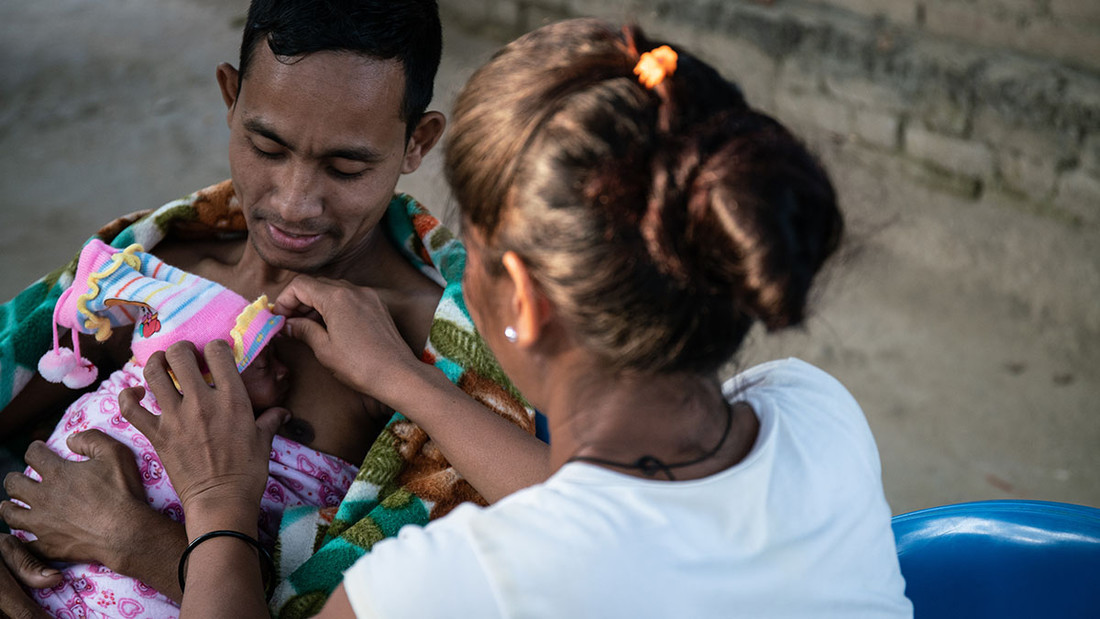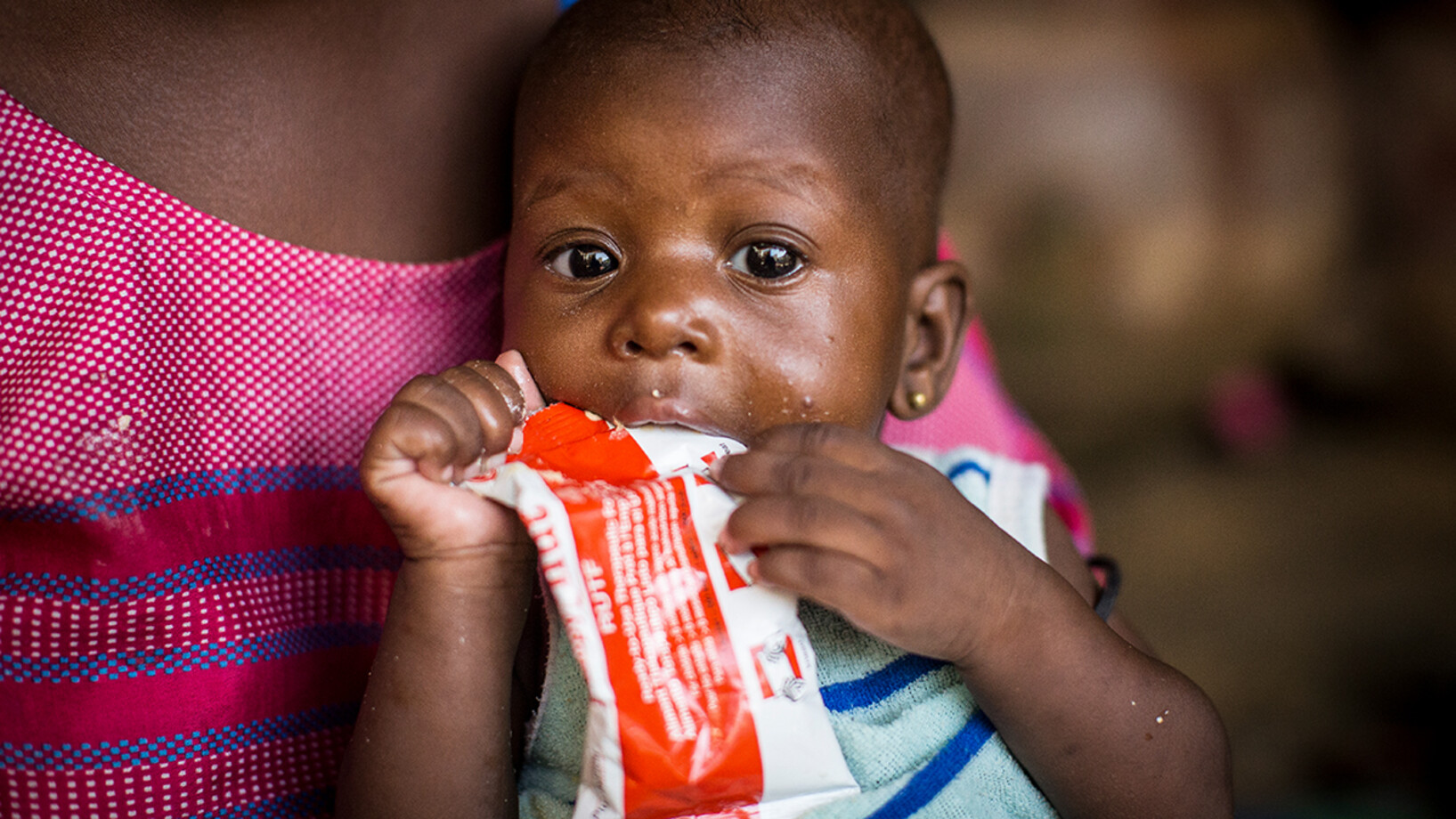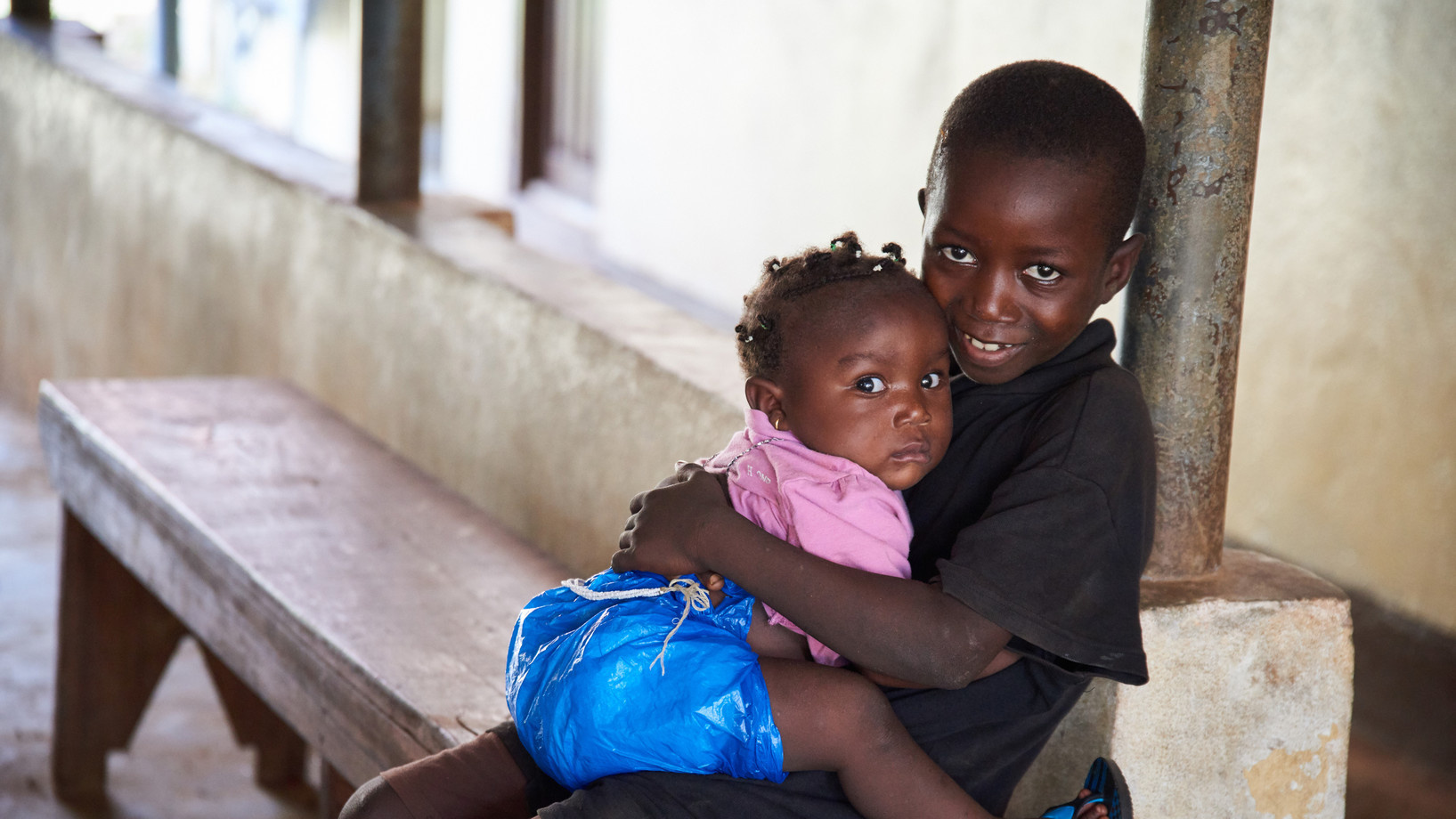In Nepal, 10,400 babies die each year due to being born underweight. Early and continuous skin-to-skin contact would massively improve their chances of survival. That is why UNICEF is working to implement the Kangaroo Mother Care approach in disadvantaged regions.
The situation
Babies born prematurely or underweight are around 10 times more likely to die than babies born after 37 weeks of pregnancy and at a healthy weight. Premature and low birth weight babies are more prone to complications such as hypothermia, respiratory distress syndrome and brain hemorrhage. In Nepal, however, there is often no access to incubators or other treatment methods.
UNICEF therefore advocates the Kangaroo Mother Care approach, which reduces the risk of health complications and death in babies weighing less than 2,500 grams. Kangaroo Mother Care refers to early and continuous skin-to-skin contact with the mother, which helps babies, particularly those born prematurely or underweight, to regulate their own body temperature, strengthening their resistance to infections and diseases. Skin-to-skin contact is a simple and cost-effective alternative to expensive and, for many parents, inaccessible conventional methods for treating premature births.
The Kangaroo Mother Care approach is already used in some hospitals and health centers in Nepal, but not in the most disadvantaged provinces. Health workers often lack key knowledge about life-saving care for newborns, as well as the necessary infrastructure.
How UNICEF helps
- Establishing Kangaroo Mother Care units in hospitals in the four least developed provinces: These are special neonatal units that provide mothers and newborns with the care they need, promote the Kangaroo Mother Care approach and monitor babies’ development.
- Establishing Kangaroo Mother Care corners in health centers in the same four provinces: These are screened corners in birthing rooms where mothers (or fathers) can give their baby the physical closeness they need immediately after birth. They are equipped with chairs or beds and supplies such as hand sanitizer.
- Using simulation-based education in the home setting, parent collaboration and stakeholder engagement to address cultural norms. UNICEF will continue to expand and prioritize care for premature and low birth weight babies and infants.
Kangaroo Mother Care can save the lives of premature and newborn babies, and UNICEF is highly committed to the approach. We thank you from the bottom of our hearts for your support.
